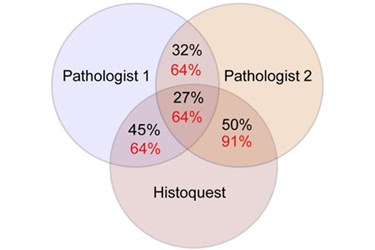New Software Could Improve Consistency Of Cancer Diagnosis
By Joel Lindsey

Researchers at the University of Veterinary Medicine, Vienna have developed software that they say could accurately and consistently diagnose cancer by identifying cell structures and proteins specific to cancer cells.
According to a recent press release published on the university’s website, “two independent pathologists concur with each other only in regard of every third diagnosis.”
“The recently developed software offers, for the first time, the option of eliminating the so-called inter-observer-variability, which is the systematic variability of judgment among different observers,” lead researchers Lukas Kenner and Helmut Dolznig said in the press release.
The software has been designed to use a combination of specialized algorithms and highly sensitive digital photography to portray both cell matrices and individual cell nuclei in greater detail than what microscopic analysis could provide.
In the most recent tests of the software, Kenner, Dolznig, and the rest of the research team used the program to successfully and accurately analyze and categorize 30 liver cell carcinomas, paying special attention to the presence of proteins like Stat5 and JunB, both of which are closely linked to the development of cancer.
“The technology will obviously not replace pathologists, but is a supplementary technology that markedly enhances the reliability of the diagnosis,” said Kenner. “The new software will help to make better assessment as to when expensive therapy is justified and also identify those cases in which it is not necessary and the patient can be spared the burden of such treatment.”
Details and results from the researchers’ recent tests of the software have been published in the journal PLOS ONE.
According to the press release, developing new diagnostic software is part of a larger push to develop “precision medicine,” a movement focused on tailoring treatment to the needs of an individual patient by providing highly precise diagnoses.
In another research project related to precision medicine, scientists at Rice University and the Methodist Hospital Research Institute have recently attempted to use magnetically guided nanostructures to help generate more detailed MRI images that could lead to more precise diagnoses of cancer and other diseases.
Image Credit: Schlederer et al. 2014 CC BY 4.0: http://creativecommons.org/licenses/by/4.0/
